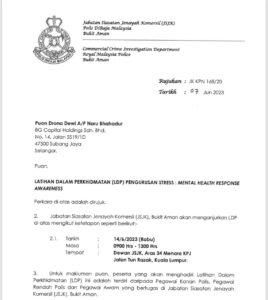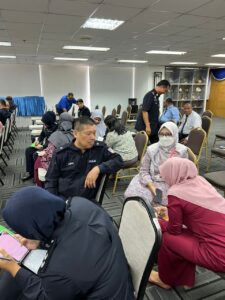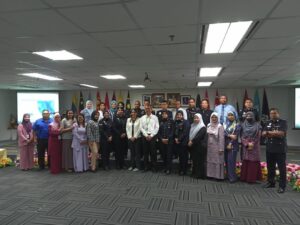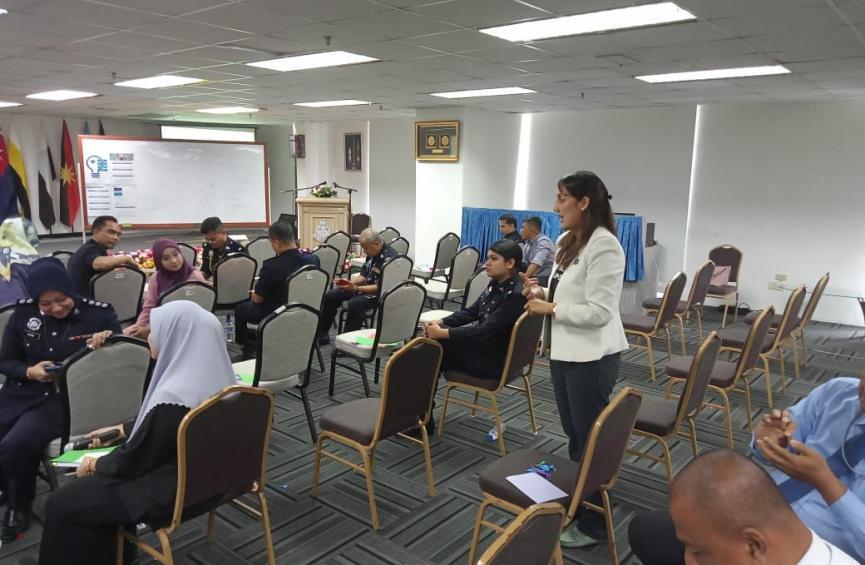Policing is a demanding and high-stress profession that often takes a toll on the mental health of police officers. However, seeking help for mental health issues remains a significant challenge for many officers in Malaysia.
The Home Minister, Datuk Seri Saifuddin Nasution Ismail said based on an internal study conducted by the police on the mental health of its officers and personnel, several factors that had contributed to suicidal tendencies include stress, health and marital issues marriage, as well as new working environment.

On June 14 2023, Drona Wellness with our collaborative partner, BG Holdings Sdn Bhd, conducted a mental Health Response Awareness program for the Commercial Crime Investigation Department, Royal Malaysia Police, Bukit Aman. We had the opportunity to meet amazing officers, discuss and start an open conversation about the barriers that prevent police officers from seeking help. In this blog post, we will explore some of the barriers that prevent police officers from seeking the mental health support they need.
- Stigma and Fear of Judgement
One of the primary barriers to seeking mental health help among police officers in Malaysia is the stigma attached to mental illness. There is a prevailing belief that seeking help for mental health issues is a sign of weakness or incompetence. This stigma creates a fear of judgement among police officers, making them reluctant to reach out for support. We conducted an activity on blowing a balloon, writing one stigma on the balloon and ‘breaking’ the stigma by bursting the balloon with hope of making the change the mental space needs.

- Lack of Awareness and Education
Another barrier faced by police officers in Malaysia is the lack of awareness and education about mental health. Many officers may not recognize the signs and symptoms of mental health issues or understand how to access appropriate resources. Without this knowledge, they may be unaware that help is available or unsure about where to turn. During the awareness workshop, they were exposed to common mental health issues and symptoms of anxiety and depression.

- Organizational Culture and Support
The organizational culture within law enforcement agencies can also contribute to barriers in seeking mental health help. In some cases, there may be a lack of support or understanding from supervisors and colleagues, which further deters officers from seeking assistance. Additionally, concerns about confidentiality and potential repercussions within their career can discourage officers from reaching out for help.
- Limited Access to Mental Health Services
Access to mental health services can be limited for police officers in Malaysia. There may be a shortage of specialized services tailored to their unique needs or long waiting lists for appointments. The lack of accessible and timely care can discourage officers from pursuing treatment.
- Work-related Stressors
The nature of policing exposes officers to various work-related stressors such as traumatic incidents, long hours, shift work, and high-pressure situations. These stressors can contribute to the development of mental health issues. However, the demanding nature of their work can also make it challenging for police officers to find time to prioritize their mental well-being or seek help.
Addressing the barriers to seeking mental health help among police officers in Malaysia is crucial for promoting the overall well-being of these dedicated professionals. Efforts should focus on reducing stigma, increasing awareness and education, fostering a supportive organizational culture, improving access to mental health services, and implementing strategies to manage work-related stressors. By breaking down these barriers, we can ensure that police officers have the support they need to maintain good mental health and continue serving their communities effectively.
We at Drona Wellness are honoured to conduct their Mental Health Response awareness program to have taken comprehensive action and further improve their training modules from time to time and revised existing programmes.

Those suffering from problems can reach out to: Mental Health Psychosocial Support Service (03-2935 9935 or 014-322 3392); Talian Kasih (15999 or WhatsApp 019-261 5999); Jakim’s Family, Social and Community care centre (WhatsApp 0111-959 8214); and Befrienders Kuala Lumpur (03-7627 2929)
Note: This blog post was written as part of Drona Wellness’s ongoing commitment to raising awareness about mental health response.
